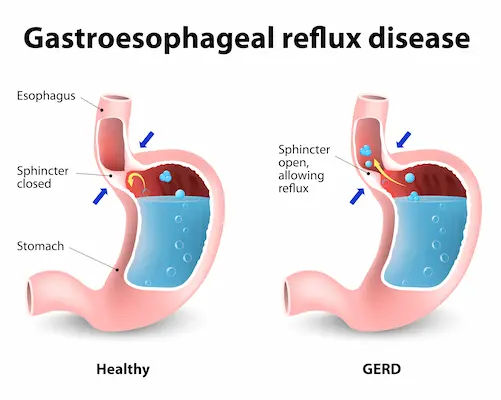The Fertility Blueprint: How Your Hormones Control Conception
Discover how hormones regulate fertility, the impact of hormonal imbalances, and ways to optimise reproductive health for conception.

Written by Dr. Dhankecha Mayank Dineshbhai
Reviewed by Dr. Rohinipriyanka Pondugula MBBS
Last updated on 13th Jan, 2026
.webp?tr=q-80,f-webp,w-350,dpr-2,c-at_max 700w)
Introduction
For many couples dreaming of parenthood, the journey can feel like a mysterious puzzle. But what if you had a blueprint—a detailed map showing the intricate systems that must align for conception to occur? That blueprint is written in the language of your hormones. These powerful chemical messengers are the master conductors of your reproductive health, orchestrating every step from egg maturation to embryo implantation. Understanding how hormones affect fertility is not just for doctors; it's empowering knowledge that can help you advocate for your health. Whether you're just starting to think about a family or have been trying for a while, this guide will demystify the crucial role hormones play. We'll break down the key players, explain what happens when they fall out of balance, and explore the pathways to restoring harmony for your best chance at conception.
The Endocrine System: Your Body's Fertility Control Centre
Before we dive into specific hormones, it's essential to understand the system that governs them: the endocrine system. Think of it as a sophisticated communication network. Your brain, specifically the hypothalamus and pituitary gland, acts as the command centre. It sends signals (hormones) to your ovaries or testes, which then produce their own hormones. This feedback loop must be precise and timely. Even a small glitch in this system can disrupt the entire process, leading to challenges with fertility. This delicate interplay is why factors like extreme stress or significant weight fluctuations can have such a profound impact—they can interfere with the brain's ability to send the correct signals, throwing the entire hormonal symphony off-key.
The Female Hormonal Symphony: A Cycle in Perfect Harmony
A woman's menstrual cycle is a masterpiece of hormonal coordination. Each hormone has a specific part to play, and they must perform in perfect sequence.
Follicle-Stimulating Hormone (FSH): The Starting Gun
FSH is produced by the pituitary gland and, as its name implies, its primary job is to stimulate the ovarian follicles (the sacs that contain immature eggs) to grow. At the beginning of your cycle, FSH levels rise, prompting a group of follicles to develop. Typically, one follicle becomes "dominant" and continues to mature while the others recede. High levels of FSH on day 3 of the cycle can sometimes indicate diminished ovarian reserve, meaning the ovaries are working harder to stimulate follicle growth.
Luteinising Hormone (LH): The Ovulation Trigger
While FSH gets the follicles growing, LH is the hormone that finishes the job. A sudden, sharp surge in LH around the middle of your cycle causes the dominant follicle to rupture and release a mature egg—this is ovulation. This is the event that ovulation predictor kits (OPKs) detect. Without this LH surge, ovulation does not occur, making conception impossible.
Oestrogen: The Uterine Preparer
Produced mainly by the developing follicles, oestrogen performs several critical tasks. It thickens the uterine lining (endometrium), creating a lush, nutrient-rich environment for a potential embryo. It also helps regulate the production of FSH and LH, ensuring the cycle progresses correctly. When oestrogen levels are optimal, it triggers the LH surge.
Progesterone: The Pregnancy Sustainer
After ovulation, the ruptured follicle transforms into a structure called the corpus luteum, which produces progesterone. This hormone's main role is to maintain the uterine lining, making it "sticky" enough for an embryo to implant. If implantation occurs, progesterone levels remain high to support the early pregnancy. Symptoms of low progesterone can include short menstrual cycles or spotting before your period, which may indicate a luteal phase defect, making it difficult for a pregnancy to establish itself.
Consult a Specialist for the best advice
The Male Hormonal Equation: More Than Just Testosterone
Fertility is a two-person endeavour, and hormonal balance is just as critical for men. The same brain hormones (FSH and LH) are involved, but they act on the testes.
Testosterone: The Driver of Sperm Production
Produced by the testes in response to LH, testosterone is essential for the production of healthy sperm (a process called spermatogenesis). It also supports libido and erectile function. While testosterone is crucial, it's a misconception that more is always better. Excessively high or low levels can negatively impact sperm health.
FSH and LH in Men: The Unsung Heroes
In men, LH stimulates the Leydig cells in the testes to produce testosterone. FSH, working alongside testosterone, acts on the Sertoli cells to nurture the developing sperm. An imbalance in these hormones can lead to low sperm count or poor sperm motility. A male hormone test for fertility can help pinpoint if the issue originates in the brain (pituitary) or the testes themselves.
When Harmony Falters: Common Hormonal Imbalances
When the delicate balance of these hormones is disrupted, it can lead to specific conditions that affect fertility.
Polycystic Ovary Syndrome (PCOS): A Case of Androgen Excess
PCOS is one of the most common causes of female infertility, affecting up to 10% of women. It is characterised by a hormonal imbalance where the ovaries produce excess androgens (male hormones). This can prevent ovulation, leading to irregular or absent periods. Women with PCOS often have insulin resistance, which further exacerbates the hormonal imbalance.
Thyroid Disorders: The Metabolic Manager Gone Rogue
The thyroid gland, regulated by Thyroid-Stimulating Hormone (TSH), controls metabolism. Both an underactive (hypothyroidism) and overactive (hyperthyroidism) thyroid can disrupt the menstrual cycle and inhibit ovulation. Even subclinical hypothyroidism (elevated TSH with normal thyroid hormone levels) has been linked to infertility and miscarriage. The question, "can thyroid problems cause infertility?" has a clear answer: yes, and proper management is key.
Hyperprolactinaemia: When Prolactin Interferes
Prolactin is the hormone responsible for milk production. When levels are high outside of breastfeeding (a condition called hyperprolactinaemia), it can suppress the hormones that trigger ovulation. This can lead to irregular periods or a complete lack of ovulation.
Low Testosterone in Men: Impact on Sperm Health
In men, low testosterone can directly lead to decreased sperm production. It can be caused by issues with the testes (primary hypogonadism) or with the pituitary gland (secondary hypogonadism). Symptoms may include low libido, erectile dysfunction, and fatigue.
Diagnosing Hormonal Issues: Tests and Timing
If you suspect a hormonal issue, a doctor can order simple blood tests. For women, the best time to test female fertility hormones is specific:
- Day 2-4: FSH, LH, Estradiol (to assess ovarian reserve).
- Mid-cycle: LH (to detect the surge).
- Day 21 (or 7 days post-ovulation): Progesterone (to confirm ovulation occurred).
- Any time: Thyroid panel (TSH), Prolactin, Testosterone.
For men, a semen analysis is the primary test, but hormone testing (Testosterone, FSH, LH, Prolactin) is often done if the analysis is abnormal. If you are experiencing irregular cycles or have been trying to conceive without success for a year (or six months if you're over 35), consult a doctor online with Apollo24|7 for further evaluation. They can guide you on the necessary tests, and Apollo24|7 offers convenient home collection for these hormone panels.
Restoring Balance: Pathways to Improved Fertility
The good news is that many hormonal imbalances can be managed.
Lifestyle Modifications: Diet, Exercise, and Stress Management
How to balance hormones for fertility naturally often starts with lifestyle. A balanced diet rich in antioxidants, healthy fats, and fibre can support hormonal health. Maintaining a healthy weight is crucial, as both underweight and overweight can disrupt cycles. Managing stress through yoga, meditation, or therapy is vital, as cortisol (the stress hormone) can directly interfere with reproductive hormones.
Medical Interventions: From Medication to ART
Medical treatments are highly effective. These can include:
- Medications: Clomiphene citrate (Clomid) or Letrozole to stimulate ovulation.
- Thyroid Medication: Levothyroxine to correct hypothyroidism.
- Dopamine Agonists: To lower prolactin levels.
- Assisted Reproductive Technology (ART): Including Intrauterine Insemination (IUI) or In Vitro
- Fertilisation (IVF) for more complex cases.
If your condition does not improve after trying lifestyle methods, book a physical visit to a specialist with Apollo24|7 to discuss these options.
Conclusion: Empowering Your Fertility Journey
Understanding how hormones affect fertility transforms a mysterious process into a manageable one. These chemical messengers are not fate; they are factors that can be measured, understood, and often, optimised. By recognising the signs of hormonal imbalance, seeking timely testing, and exploring both natural and medical pathways to balance, you take an active role in your reproductive health. Remember, you are not alone on this journey. Armed with knowledge and the support of healthcare professionals, you can navigate the challenges and move forward with confidence and hope.
Consult a Specialist for the best advice
Consult a Specialist for the best advice
Dr. Suparna Kayal
General Practitioner
4 Years • MBBS
Kolkata
GRD POLYCLINIC, Kolkata

Dr. Anupriya C
General Physician/ Internal Medicine Specialist
5 Years • MBBS, MD, General Medicine
Bengaluru
Apollo Clinic, JP nagar, Bengaluru

Dr. Parwez
General Physician/ Internal Medicine Specialist
10 Years • MBBS, DNB
Ghaziabad
DR PARWEZ CLINIC, Ghaziabad

Dr. Sounak Ghosh
General Practitioner
9 Years • MBBS
Kolkata
Dr Sounak Ghosh Clinic, Kolkata

Dr Venkata Naga Sai Tribhushan Rambhatla
General Physician
3 Years • MBBS
Bengaluru
PRESTIGE SHANTHINIKETAN - SOCIETY CLINIC, Bengaluru
Consult a Specialist for the best advice
Dr. Suparna Kayal
General Practitioner
4 Years • MBBS
Kolkata
GRD POLYCLINIC, Kolkata

Dr. Anupriya C
General Physician/ Internal Medicine Specialist
5 Years • MBBS, MD, General Medicine
Bengaluru
Apollo Clinic, JP nagar, Bengaluru

Dr. Parwez
General Physician/ Internal Medicine Specialist
10 Years • MBBS, DNB
Ghaziabad
DR PARWEZ CLINIC, Ghaziabad

Dr. Sounak Ghosh
General Practitioner
9 Years • MBBS
Kolkata
Dr Sounak Ghosh Clinic, Kolkata

Dr Venkata Naga Sai Tribhushan Rambhatla
General Physician
3 Years • MBBS
Bengaluru
PRESTIGE SHANTHINIKETAN - SOCIETY CLINIC, Bengaluru
More articles from General Medical Consultation
Frequently Asked Questions
What are the most common signs of a hormonal imbalance affecting fertility in women?
The most common signs include irregular or absent menstrual periods, very heavy or very light bleeding, severe acne, unexplained weight gain or loss, excessive hair growth on the face or body (hirsutism), and recurrent miscarriages.
Can stress really impact my fertility hormones?
Yes, significantly. Chronic stress elevates cortisol levels, which can disrupt the hypothalamic-pituitary-gonadal (HPG) axis. This disruption can suppress the hormones needed for ovulation in women and sperm production in men, making conception more difficult.
How can I naturally improve my progesterone levels?
While severe deficiencies require medical intervention, you can support progesterone production naturally by maintaining a healthy weight, managing stress, ensuring adequate intake of Vitamin B6 and Zinc, and avoiding excessive intense exercise.
Is male infertility always linked to hormone problems?
No, not always. Hormonal issues are one cause, but male infertility can also result from anatomical problems, genetic issues, infections, or varicoceles (enlarged veins in the scrotum). A semen analysis is the first step in diagnosis.
When should a couple consider getting hormone testing done?
It's generally recommended that couples under 35 see a doctor if they haven't conceived after one year of unprotected intercourse. If the woman is 35 or older, this timeline shortens to six months. However, if there are known issues like irregular periods or a history of pelvic surgery, it's wise to seek advice sooner.




